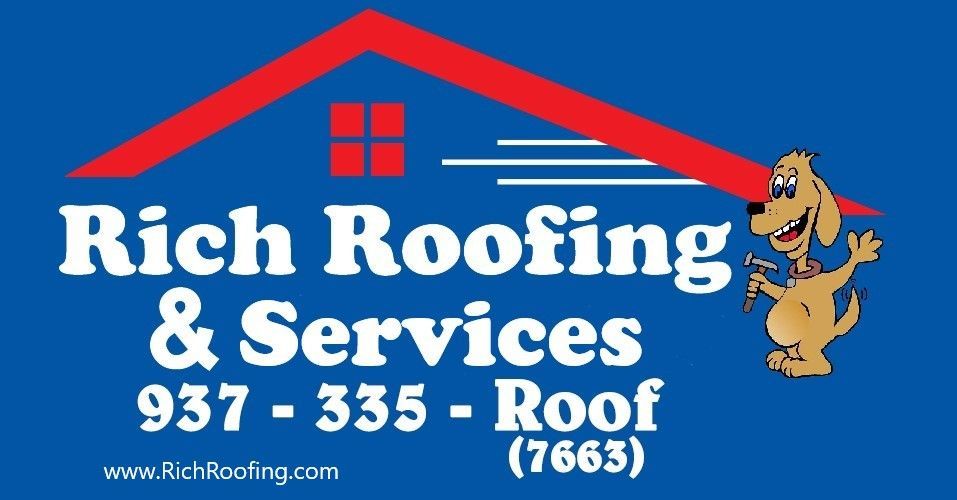We Proudly Serve

Rich Roofing & Services
FAQs
Since 1965
Senior, Veteran, and First Responder Discounts
Free Estimates
Hours:
Request Service
Hero Request Form
Thank you for contacting us.
We will get back to you as soon as possible
Please try again later
Learn More About Rich Roofing & Services
Have an exterior-related question? We have the answer! Check out our FAQs below to learn more about our company and services.
-
Is it okay to install new shingles over the old shingles?
Old shingles can hide potential problems, such as bad wood and worn-out flashing. By installing new shingles over them, you’re playing roulette with your home. Your roof’s structure could be sound, or it could have an unforeseen problem that could later lead to thousands of dollars in damage. Based on our experience as a roofer, the additional investment required to remove the old shingles is slight, and new shingles on a solid support system will provide you with a roof that will last years longer, perform better, and give you greater peace of mind.
-
What are the advantages of installing dimensional shingles?
Dimensional shingles are a true investment and offer a much higher wind rating versus three-tab shingles. Also, as opposed to three-tab shingles, dimensional shingles will increase the value of your home while saving you money. The wood structure in your roof can have an unsightly wave to it. Correcting this illusion costs thousands of dollars. Dimensional shingles hide this wavy appearance while giving your home’s exterior a deep, rich, and refined look. Contact our roofers with any questions you may have.
-
How long should a shingle roof last?
Roofs are like tires. While a manufacturer may say a tire will last 60,000 miles, you should replace them at 40,000 to 45,000 miles. In roofing, most manufacturers produce 30-year shingles. However, our roofers have seen that the harshness of the climate affects that estimate. In colder climates, roofs generally need to be replaced every 16 to 22 years and in warmer climates, every 10 to 12 years. Just as you don’t want to risk driving on low tire tread and having a blowout, you don’t want to own a roof that’s susceptible to leaking. It’s better to replace your roof earlier before it fails and leads to bigger problems. A yearly roof inspection program is suggested. According to Home 365, a replacement roof can yield 85% or more of its investment costs back upon resale.
-
How long will it take to complete the work?
Depending on the architectural design of your home and barring any unforeseen situations, roofers should be complete the job in one day, on occasion two days, and seldom three or more. Extended construction time is needed when hidden damage to your roof’s structure is discovered or if your roof has a complicated design.
-
How do you protect my landscaping?
Your premises will be left exactly the same, if not better than the way we found it. Our roofers will install tarps, plywood, and other levels of protection around your property, and in the unlikely instance something is damaged, we will correct it immediately at our cost.
-
What is the price difference between a metal, asphalt, or shingle roofing?
The prices vary based on many factors -- the size of the home, number of protrusions and valleys, and others. On average, a metal roof will be considerably more than a shingle roof. Metal roofs also last three to five times longer.
-
How much ventilation should my attic have?
There are many different forms of ventilation for attics. Depending on which you pick will determine the amount you need. Most codes use the 1/300 rule for minimum residential attic ventilation. For every 300 square feet of attic space, one square foot of ventilation is required -- half at the upper portion and half at the lower portion of the roof. This creates intake and exhaust. Contact our roofer for information about your specific situation.
-
Why is it important to work with an insured contractor?
Many contractors do not have insurance licenses, which makes you liable for any damage or injuries their employees sustain while working on your home. This means if the roofer chosen does not have insurance, the state of OH looks at you, the homeowner, as the general contractor and they will use your insurance to cover any damage to property and injuries to employees.
Share On: